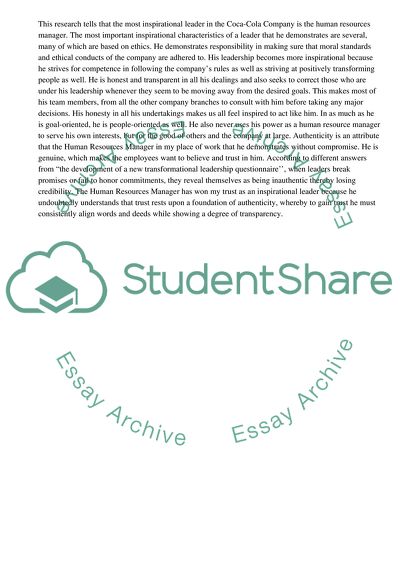Cite this document
(“The Vost Inspirational leader in the Coca-Cola Company Assignment”, n.d.)
Retrieved from https://studentshare.org/management/1556099-assignmentcompiled-final-project
Retrieved from https://studentshare.org/management/1556099-assignmentcompiled-final-project
(The Vost Inspirational Leader in the Coca-Cola Company Assignment)
https://studentshare.org/management/1556099-assignmentcompiled-final-project.
https://studentshare.org/management/1556099-assignmentcompiled-final-project.
“The Vost Inspirational Leader in the Coca-Cola Company Assignment”, n.d. https://studentshare.org/management/1556099-assignmentcompiled-final-project.


